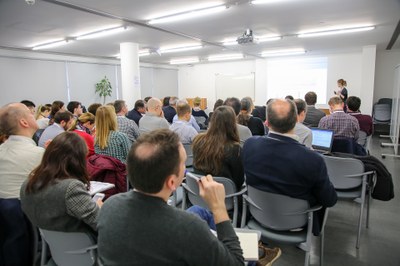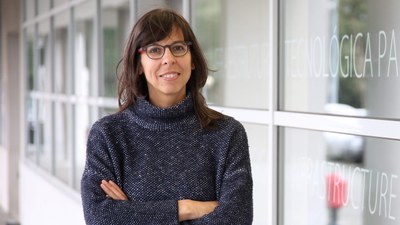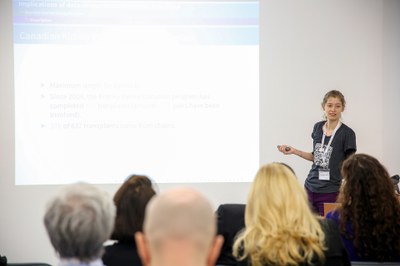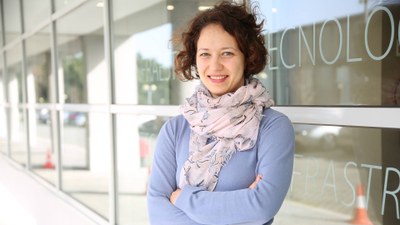INESC TEC's researchers develop tools to facilitate kidney donation between countries
ENCKEP project involves 28 countries
ENCKEP (European Network for Collaboration on Kidney Exchange) is the European project that involves 28 countries that are committed to facilitate kidney donation between countries. The researchers from INESC TEC’s Centre for Industrial Engineering and Management (CEGI) are responsible for the creation of the technological tool that will facilitate these processes. INESC TEC and the Portuguese Institute of Blood and Transplant are the only Portuguese partners of this project.

The goals of ENCKEP and the issue of kidney donation between countries
Ana Viana, Coordinator of CEGI and Vice Chair of this European project, ensures that kidney donation is an issue transversal to the 28 countries involved.
One of the major goals of ENCKEP is to stimulate the European dialogue and to identify the best practices in the area of paired kidney exchange. Examples of good practices are “the criteria of patient affectation to donors, the type of information to be used on the patients and the data to be considered in a preliminary compatibility test", explains Ana Viana.
The project also intends to propose a common platform for data sharing and the optimisation of the models in international programmes, by developing and testing a cross-border prototype. “In this field, there are several ethical, legal and technological concerns”, explains the INESC TEC researcher.

The following countries also participate in this project: Austria, Belgium, Bosnia and Herzegovina, Bulgaria, Czech Republic, Estonia, Finland, France, Macedonia, Germany, Greece, Hungary, Italy, Island, Ireland, Lithuania, Malta, the Netherlands, Poland, Romania, Serbia, Slovakia, Spain, Sweden, Switzerland, Turkey and the United Kingdom.
The advantages of the cross-border programmes
The increase of the dimension resulting from the implementation of cross-border programmes of paired kidney exchange has a significant impact on renal patients who are waiting for a transplant, since the more pairs the programmes have, the greater the possibility is to find out a compatible organ.
This way, smaller countries, which have small sized national programmes, can have a greater number of transplanted patients. However, this doesn’t mean that the largest countries will be ignored in this process. The largest countries will also benefit from this collaboration.

“When the project started, there weren’t any cross-border programmes of paired kidney exchange. At the moment, that collaboration is already happening, not necessarily through the project, but it requires a more deep analysis on the best operational way. Particularly, when speaking of scarce resources, that is, the organs, it is necessary to understand how these organs must be fairly distributed by the participating countries and, eventually, respecting policies that can not be standardised between the different countries", explains the researcher.
The technological tool developed by INESC TEC
An optimisation tool to find out the “more interesting pairs” for the transplant already exists and it was developed by INESC TEC. Within the framework of the consortium, the researchers from INESC TEC that are involved in this project are also responsible for studying hypotheses and for developing models that reflect the reality.
The goal is to present a final prototype in 2020, when ENCKEP will end.

Researchers from the ENCKEP project met in Porto
Between 11 and 12 March, INESC TEC welcomed in its headquarters a set of institutions responsible for national programmes in several European projects, doctors and other healthcare professionals, engineers, mathematicians, computer scientists, among others, for a workshop on the project. The organisation of this workshop was led by Xenia Klimentova, who is also a researcher from CEGI and co-responsible for one of the working groups of the project, and by Ana Viana.

The event aimed to:
- Debate ethical, legal, operational and organisational aspects to be addressed in the design of cross-border programmes;
- Debate different approaches that can be considered in the optimisation of the result sharing;
- Listen to what a set of international attendees had to say, in this case from India, the United States and Canada, on a problem that, despite having the same basis, it has completely different implementation and management methods in the countries mentioned.
The ENCKEP project is funded with approximately EUR 600 000 by the European Cooperation in Science and Technology (COST).
The researchers mentioned in this news piece are associated with INESC TEC and P.Porto-ISEP.


